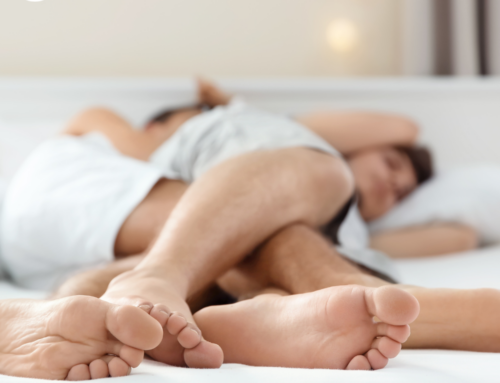CHICAGO – People fill the bar and patio at Nobody’s Darling on a Saturday in early May, sipping craft cocktails and listening to the music of a local queer DJ.
“We’re so much more than a cocktail bar,” said co-owner Renauda Riddle, 42. “We’re almost like a community center.”
Nobody’s Darling is one of an estimated 27 lesbian bars in the U.S., down from the hundreds that existed in the 1980s, according to The Lesbian Bar Project, an awareness campaign that runs a website and released a short film and TV series on the topic.
Start the day smarter. Get all the news you need in your inbox each morning.
It’s also one of six new spaces added to the The Lesbian Bar Project’s list since last summer. As the COVID-19 pandemic ebbs, a resurgence of lesbian bars, restaurants and pop-ups has begun in parts of the U.S., according to filmmakers Erica Rose and Elina Street, co-directors of the campaign.
But that’s not the case nationwide. Some lesbian bars in the South and Midwest are facing significant uphill financial and political battles, and at least one longstanding community anchor recently closed its brick-and-mortar location − Herz bar in Mobile, Alabama.
“We are optimistic,” Rose said. “Even despite our beloved Herz closing, I think that we’re moving in the right direction.”
What is a lesbian bar?
What makes a bar uniquely “lesbian,” according to the The Lesbian Bar Project, is “its prioritization of creating space for people of marginalized genders.” That specifically includes women, trans men and people who are nonbinary, but the spaces generally “aim to be inclusive of all individuals across the diverse LGBTQIA+ community,” the campaign says.
Angela Barnes, 54, co-owner of Nobody’s Darling, said many people of marginalized genders have had the experience of feeling unseen, ignored or unsafe at gay bars or traditionally male spaces. “When you come in our space, we are intentionally making you feel like you are important,” Riddle said.

There haven’t always been so few lesbian bars, said Greggor Mattson, a professor of sociology at Oberlin College who studies gay and lesbian bars. The 1970s saw an increase in lesbian bars nationwide, peaking around 1987 when there were more than 200. But after that, “there was a crash in the number of lesbian bars.” From 1987 to 1992, that number dropped from 206 to 37, he said. The trend continued in the 2000s.
Last summer, USA TODAY spoke with bar owners across the country and found that while many bars have closed, others have been rebranding into broadly “queer” spaces and expanding their offerings to de-center alcohol. Younger generations have been embracing new language to describe gender identity and sexual orientation, and institutions have been trying to evolve alongside the communities they serve.
“There is this dialogue and conversation around lesbian and queer space like we haven’t seen in a really long time. And there’s this energy and excitement that people are going out again,” Rose said.
Where are the lesbian bars? Owners say they haven’t died out – they’re evolving into queer spaces.
Last fall, The Lesbian Bar Project released a three-part docuseries on Roku featuring three bars: Pearl Bar in Houston, Boycott Bar in Phoenix and Henrietta Hudson in New York City. A second season is expected this fall, featuring episodes filmed internationally.
Rose and Street said they were recently researching nightlife in Germany for the upcoming season when they encountered a new acronym: FLINTA, which stands for female, lesbian, intersex, nonbinary, trans and agender. “To us, that’s really what a lesbian bar is. And it’s been wonderful to see this evolution,” Street said.
Six new lesbian bars added to the list
Over the past year, The Lesbian Bar project has added six more bars to its list: two in Los Angeles, two in Chicago, one in San Francisco and one in Worcester, Massachusetts. Street and Rose said they hope to soon add another bar in New York City.
Los Angeles has had a rich scene of queer pop-up parties and events for years, but there was a need for a reliable brick-and-mortar queer space, said Charlotte Gordon, 28, one of the founders of Honey’s. The “queer bar, lesbian bar and trans-inclusive space” opened in East Hollywood in February at a speakeasy venue called Star Love.
“It sounds cheesy, but really everyone who walks through the doors is a honey to us,” Gordon said.

In recent months, Gordon said, she and her partners have been experimenting with different types of programming – including DJs and burlesque, comedy and drag shows – and soliciting community feedback.
“It’s been really interesting to watch it grow week by week,” said co-founder Mo Faulk, 30.
Zoe Schor, 40, grew up in Los Angeles and recalls going to lesbian bars to watch “The L Word,” a TV show about lesbians and bisexuals in the city. Decades later, she’s now screening a reboot of the show, “The L Word: Generation Q,” at her own lesbian bar and cocktail lounge in Chicago.
“The most meaningful are the things that really harken back to my time coming up in the lesbian bar scene,” said Schor, co-owner of Dorothy.

Schor and Whitney LaMora, 36, first opened and promptly closed Dorothy in February 2020, just before the pandemic. The space officially reopened in July 2022. Since then, they’ve hosted an array of events, including a monthly queer open-mic night called “Fruit Salad” and screenings of the 1999 film “But I’m a Cheerleader” and the Showtime series “Yellowjackets.”
“It’s for every ‘friend of Dorothy,'” Schor said, referencing a euphemism historically used for gay men. “So far there has been more than enough community to support us, and we look forward to continuing to grow.”

At Nobody’s Darling, the owners were named a semi-finalist for a James Beard Award last year for “Outstanding Bar Program.” They’re planning to expand into an adjacent storefront in the coming weeks.
“It feels really good,” Barnes said. “People say, ‘Thank you for opening this space.'”

It’s not just bars that are sprouting up, Street said. There’s an abundance of new lesbian restaurants and pop-up events, too. “It’s quite wonderful to see how these pop-ups, restaurants, parties are able to be mobile,” said Street, who recently attended a queer line dancing pop-up in New York City.
At the same time, Japonica Brown-Saracino, a professor of sociology and women, gender and sexuality studies at Boston University, said it’s too early to characterize the spate of openings as a rebound for lesbian bars.
“I hope this increase in lesbian bars is part of a sustained trend,” Brown-Saracino said. “But we’ll just have to wait and see.”
Lesbian bars in South, Midwest face challenges
Even as new bars open across the U.S., others have been forced to shutter.
Already, lesbian bars are facing an uphill battle, Street said, noting the wage gap and the fact that women generally consume less alcohol. Many have also been hurt by hateful rhetoric targeting trans and nonbinary communities and a spate of anti-trans bills in state legislatures, Street said.
“Some of the bars that we have worked with closely are the only safe space for drag performers and trans people or gay people and lesbians in general for hundreds of miles radius,” Rose said.

Today’s political climate reinforces the need for lesbian bars as safe havens, said Jack Jen Gieseking, a research fellow at the Five College Women’s Studies Research Center in Amherst, Massachusett, who is working on a book titled “Dyke Bars*: Queer-Trans Spaces for the End Times.”
“Amid all of this, people are asking ‘Where can we be happy? Where can we play? Where can we be sad and admit fully how we’re feeling?” they said. “The answer is often a lesbian bar.”
‘War’ on LGBTQ existence: 8 ways the record onslaught of 650 bills targets the community
In Florida, the “only lesbian bar” in the state is fighting to stay in business.
Vicki Gibson, 59, opened The Lady’s Room in Largo in April 2022, fulfilling a lifelong dream. She said she was 12 years old when her family discovered she was a lesbian and disowned her. “I was kicked out, and the only escape I knew was go to where I’m safe. And that was the lesbian bars,” Gibson said.
When Hurricane Ian hit last September, it knocked out her power for two weeks, and she lost all of her inventory. In November, she had to sell her land in Tennessee to keep the bar alive. By early April, she found herself in tears, planning to put her bar on the market.

That’s when a journalist with “Cruising,” a podcast about lesbian bars, came to interview Gibson, and recordings of the interview blew up on TikTok. Actress Heather Matarazzo of The Princess Diaries also spoke out about the bar online. Within 10 days of starting a GoFundMe, Gibson received more than 1,000 donations totaling more than $37,000.
Suddenly, there were people waiting at her door when she opened. She had a packed house with standing room only. She met people who had driven in from across the state. She was able to hire security staff and host a one-year anniversary party.
“Ever since this TikTok has gone out, it has just been amazing,” Gibson said.
Gibson said she has received messages from people as far-flung as Washington State. In late April, she was sorting through a stack of bills in her mailbox when she found a handwritten letter from a 23-year-old nurse in Minnesota thanking her for being an inspiration. She cried.
“If I can help one person, then I’ve done something right.”
More from USA TODAY
What does the ‘L’ in LGBTQ stand for? What identifying as lesbian means.
What days are Gay Days at Disney World? Everything to know about the red shirt tradition.
What is pansexual? What to know about the LGBTQ label.
Follow Grace Hauck and Christine Fernando on Twitter at @grace_hauck and @christinetfern. Reach them via email at ghauck@usatoday.Com and cfernando@usatoday.Com.
This article originally appeared on USA TODAY: Are lesbian bars making a comeback? As iconic haunts close doors, new spaces take root.







Leave A Comment